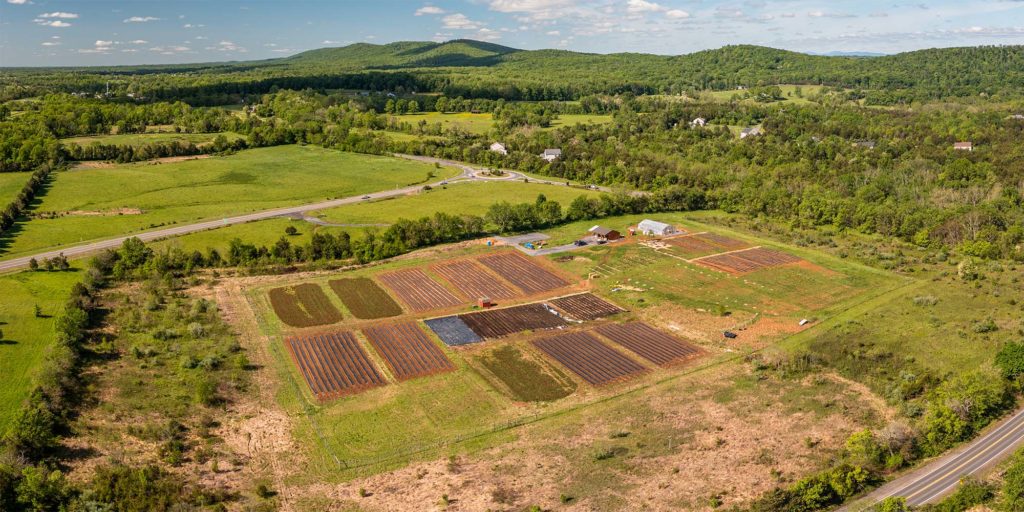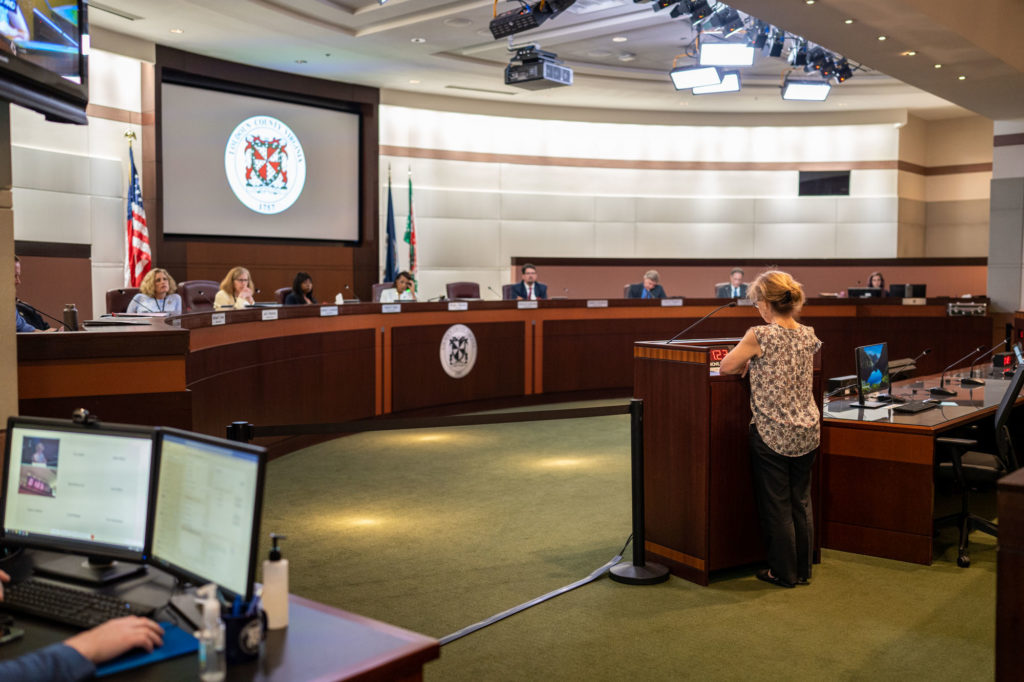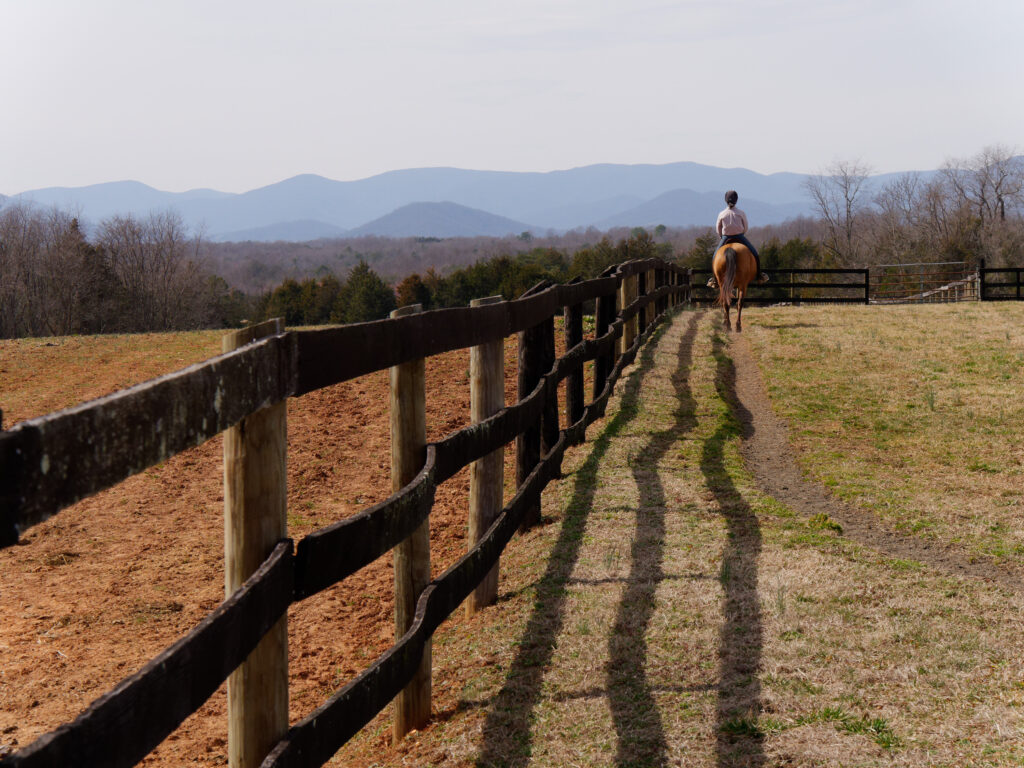This text was taken from an email sent out on Nov. 14, 2024. Sign up for email alerts →

Dear Supporter,
In an effort to address harmful inconsistencies and reduce negative impacts on neighboring properties within Loudoun’s Rural Policy Area, the Board of Supervisors will be spending the next two years reviewing and updating both the Loudoun Comprehensive Plan and the accompanying zoning regulations. Originally part of the 2023 Zoning Ordinance Update, this new effort is called the Western Loudoun CPAM/ZOAM.
Twenty-six years ago, Loudoun County proposed a “200,000-acre solution” to support rural area businesses and curb residential development. Since then, the county has been highly successful in attracting new businesses looking to leverage Loudoun’s stunning rural open spaces. But under the current regulations, some businesses, especially traditional agricultural businesses – farms, equine centers, etc. – have been unable to innovate for an ever changing economy and customer base.
The businesses most supported by today’s ordinance are primarily non agricultural in nature as adjustments have been made to support the newer industries coming online over the years. Unfortunately, the agricultural based businesses have not benefited from updates or adjustments in the same way, and residents have felt the negative impacts of unexpected large public gatherings now located nearby.
Seven stakeholder work sessions will begin on Nov. 21, covering topics ranging from agricultural processing facilities to farm wineries. The official county webpage lists the topics and the dates they’ll be discussed. We encourage you to submit an official public comment form on any or all of the topics, to support the rural area and share your experiences and concerns for western Loudoun.
First Rural Area Stakeholder Meeting
Thurs., Nov. 21 @ 5 p.m.
1 Harrison Street, S.E., Leesburg
We know many of you gave input in the past, but it is vital to submit comments again! Filling out this form at least once and giving early input is very important as specific issues are still being identified and language has not yet been set.
Rural Loudoun is a valuable resource for all Loudoun residents and businesses, for farm-based enterprises and local food security, as well as tourism and the broader rural economy. It is also Loudoun’s primary source of climate mitigation, where its soils, trees and green space capture carbon and heat. This region has benefitted from that long-standing recognition in county policy; we need you to help ensure that continues into the future.

Review Process & Stakeholder Group
Although the process will include opportunities for public input throughout, it is vital that the public and interested parties give their input now, at the jumping off point, while there is ample time to address the most pressing issues.
- The Board will start the process with intensive stakeholder work sessions managed by its Transportation and Land Use Committee (TLUC). The first of seven meetings will begin next week on Nov. 21 at 5 p.m. They will run through 2025.
- Then, in 2026, county staff will develop draft language for the comprehensive plan and zoning amendments, to be reviewed by the Zoning Ordinance Committee (ZOC).
- And finally, the amendments will move on to a Planning Commission public hearing and work sessions, and a Board of Supervisors public hearing, for any final revisions and adoption. This process is expected to conclude in 2027.
Also participating in the work session discussions will be three distinct groups of stakeholders as defined by the Board: residents, agro-businesses, and preservation and agricultural businesses.
- Residents: These will be nominated individually by the three supervisors whose districts comprise western Loudoun. Contact Supervisors TeKrony or Kershner, or Chair Randall if you’re interested in serving as one of these representatives.
- Agro-businesses: These have been recently defined by Supervisor Kershner’s motion to include only wineries, breweries and distilleries. Representative stakeholders will be chosen by Beth Erickson of Visit Loudoun.
- Preservation and Agriculture: This group represents all other agricultural businesses and farmers of western Loudoun. Loudoun leads the Commonwealth of Virginia in 11 different agricultural industries, including equine, hay, vegetable production, cut flowers, berries and goats. Chris Van Vlack of Loudoun Farm Bureau will choose the representatives from this broad stakeholder group.
Meeting Schedule
The tentative schedule for the stakeholder sessions:
- Meeting 1: Liveries/Stables/Outdoor Recreation Scheduled – Nov. 21, 2024
- Meeting 2: Ag Processing / Other Farm Related Uses – Jan. 2025
- Meeting 3: Value Added Farming / Other Farm Related Issues/ Conservation Easement Density – Date TBD
- Meeting 4: Mountainside Overlay District / Signage Anticipated – Date TBD
- Meeting 5: Farm Wineries / Limited Breweries / Limited Distilleries/Events – Date TBD
- Meeting 6: Food Trucks / Food Service / Rural Restaurants – Date TBD
- Meeting 7: Outstanding Issues – Date TBD
Greatest Concerns for Nov. 21 Stakeholder Meeting
PEC and many advocacy groups have worked hard to support residents’ needs and keep active agriculture thriving in western Loudoun. And for many years, we have offered input and shared our concerns, as have many of you. Unfortunately, the bulk of specific, long-identified issues went unaddressed in the last zoning ordinance update.
Now is the time to make adjustments that prioritize support for the agricultural businesses and farming communities that Loudoun County is so well known for. We will keep you updated as this process moves along, and share our concerns in advance of each meeting. Up first on Nov. 21: Stable, Livery, Outdoor Recreation

Loudoun County leads the Commonwealth in both number of horses and number of equine farms. Because the equine industry is one of the strongest agricultural sectors in Loudoun today with a great deal of potential for growth over the coming decade, it is vital that our county’s Comprehensive Plan and Zoning Ordinance are supportive of these farms. The current ordinance, however, places severe restrictions and regulations on their operations, far exceeding those on non-agricultural based businesses operating in the same region.
For example:
- The stable/livery has been incorrectly categorized as an “accessory agricultural use” in the zoning ordinance, instead of what they are, which is an essential standalone agricultural use.
- The setback and buffering requirements for stables and liveries is currently far greater than those for other rural businesses. They should be brought onto an even playing field as landscape buffers are expensive and represent a potential barrier to entry for new businesses, especially ones that are often vital components of the rural scenery itself.
- The current ordinance’s limitations on building square footage creates issues for the construction of indoor arenas for equine training and events. This prevents the equine industry from training year-round, which would boost Loudoun’s economy. Reasonable limits should be developed with industry input.
- Any outdoor recreation facilities built in western Loudoun should respect the setting in which they are created, with features like unpaved roads/parking lots and with no event style lighting to contribute to light pollution and detract from the county’s dark skies policies.
The Board of Supervisors is already looking to add a new equestrian facility, and existing equine facilities are considering expanding to host more national horse shows in Loudoun. With adjustments to the regulations governing stables and liveries, the county can support the equine sector to make an already impactful industry even more robust — to keep the rural economy growing, even as other sectors are reaching a saturation point.
Thank you for all of your support and for submitting your input at this critical time for these amendments. This is the moment to show the Board of Supervisors the public is watching and engaged on these issues!
Tia Earman
Senior Land Use Field Representative
Loudoun and Clarke Counties
[email protected]
